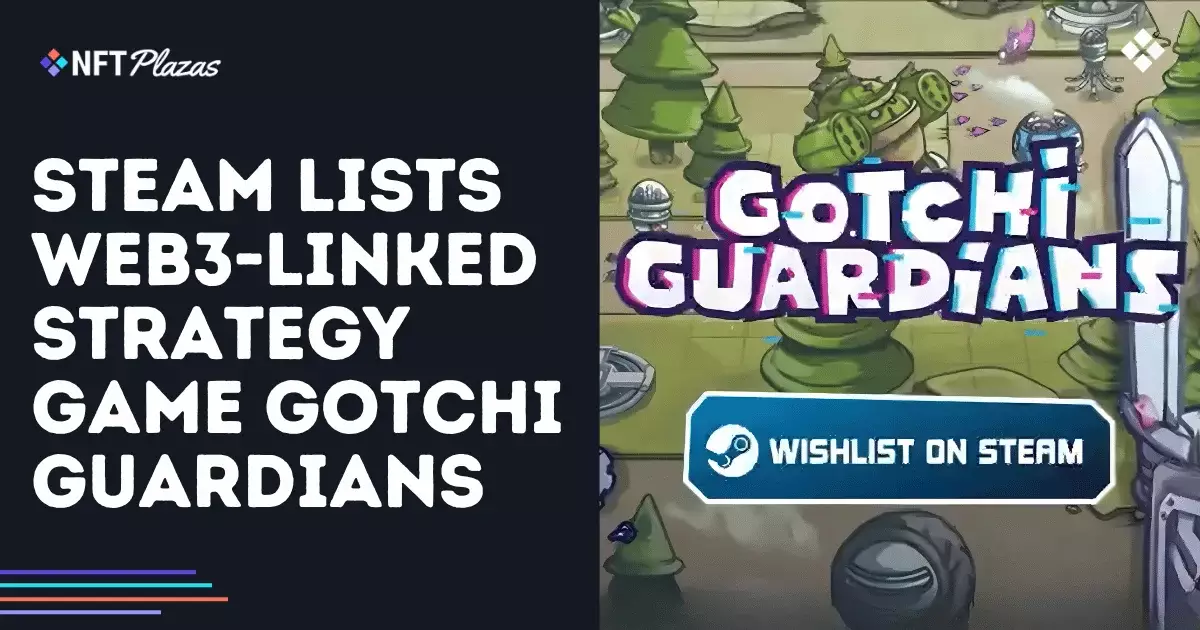The recent arrival of NFT-integrated titles like *Gotchi Guardians* on mainstream platforms such as Steam underscores an ongoing trend—gamers are being seduced by the allure of blockchain technology. Yet, beneath this shiny veneer lies a series of questionable promises and unfulfilled claims. The gaming industry’s adoption of NFTs, often marketed as a revolutionary step forward, is more a reflection of market hype than genuine innovation. Many developers tout blockchain integration as a means of enhancing player ownership and fostering vibrant communities. However, experience suggests otherwise. The core gameplay mechanics remain untouched by blockchain assets, and these features often function more as marketing hooks than meaningful gameplay elements. Such strategies risk alienating a user base that craves authentic gaming experiences rather than superficial gimmicks.
Tokenization as a Trojan Horse for Exploitation
NFTs in gaming are frequently sold as a way for players to truly own their in-game content. But in reality, this often boils down to blockchain vanity items—cosmetic skins and overlays that do little to alter gameplay. When players are encouraged to purchase NFTs with real money or cryptocurrency such as $GHST, they are subjected to a marketing ploy that masks a complex and opaque economic model. These assets, while technically transferable, tend to have little resale value or practical utility outside specific ecosystems. This opens the door for exploitation, as players can be coerced into unnecessary spending under the guise of ownership. Moreover, the inclusion of proprietary tokens and blockchain payments introduces financial volatility and security risks—elements that are undesirable in the typically casual and entertainment-focused culture of gaming.
The Mirage of Community and Fair Play
The promise of blockchain in gaming is often that it will lead to more transparent and decentralized ecosystems—empowering players to truly own their assets and participate in governance. Yet, games like *Gotchi Guardians* demonstrate a different reality. The game’s core multiplayer mechanics emphasize cooperation and competition, yet the integration of NFTs and tokens does little to enhance community trust or fairness. Instead, it risks creating a tiered society where players with NFT assets gain superficial prestige without meaningful gameplay benefits. Challenges such as pay-to-appear and the potential for “whale” dominance threaten to turn what should be a communal experience into a transactional spectacle. The idea that blockchain technology will democratize gaming is fundamentally flawed when weighed against the realities of financialized assets and rising economic disparities.
Long-term Sustainability and Industry Credibility
The push for blockchain games like *Gotchi Guardians* appears driven more by short-term profit motives than a genuine desire to improve the gaming landscape. While developers promise ongoing content and support, the integration of NFTs often complicates development cycles, introduces unnecessary legal and security concerns, and distracts from core game design. There’s a palpable risk that these titles will become niche experiments, fading away once player interest wanes or regulatory scrutiny intensifies. For the broader industry, this approach damages credibility; it risks alienating core players who value gameplay authenticity and community integrity over speculative investments. If the industry continues down this path, it may face a future where gaming’s reputation is marred by financialization and superficial gimmicks rather than artistry and skill.
NFT gaming, as exemplified by recent releases like *Gotchi Guardians*, promises a utopia of player empowerment and ownership, but reality paints a much bleaker picture. It is an industry entangled in a web of hype and profit chasing, often at the expense of genuine gameplay experiences and community cohesion. For players and developers who value integrity and long-term sustainability, skepticism is warranted—not just as a defensive stance, but as a necessary critique of what blockchain integration truly offers. Without meaningful benefits for players, and with the risk of financial exploitation, the NFT gaming trend remains a disruptive force more rooted in speculation than in constructive innovation. Until these issues are addressed decisively, confidence in blockchain’s role in gaming will continue to erode, casting a shadow over even the most promising titles.

